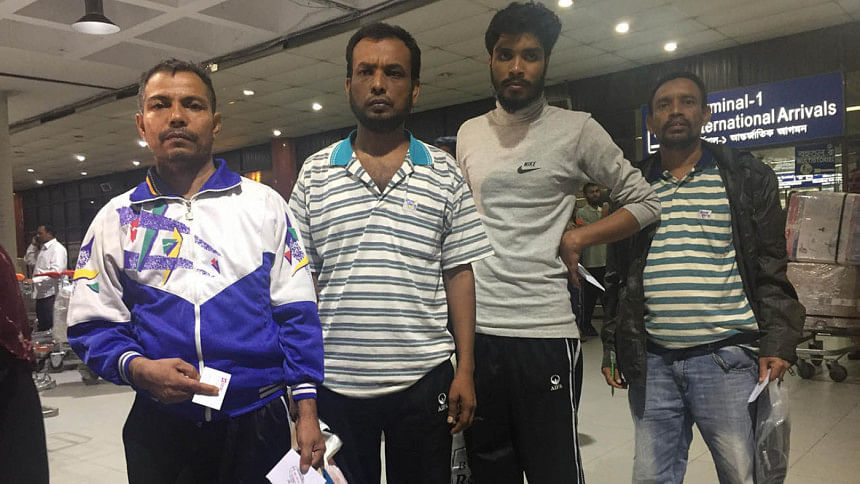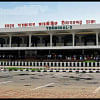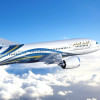From dream to nightmare

A frail-looking Dadan Mia stepped out of Shahjalal International Airport with a small handbag, walking slowly with a sense of uncertainty. He had an uncombed black hair, flecked with grey, and an unkempt beard. Dressed in a shabby jacket and trousers, Dadan seemed to be on the verge of tears.
“No…I have brought nothing for my children,” said a sobbing Dadan, father of three daughters.
“I have been totally ripped off and tortured. Thanks to Allah I have returned alive,” said Mia, 45, of Madaripur's Rajoir upazila. He had just returned from Libya, where he had gone to pursue his dreams, only to be caught in his worst nightmare.
In the middle of last year, brokers had enticed him with a job in Italy, where he would go via Libya. However, once he arrived in the African country, he was held hostage and tortured by Bangladeshi and Libyan brokers.
They began demanding ransom from him and got some of it before he was sent to jail some five months back.
The Ministry of Foreign Affairs, in association with the International Organization for Migration (IOM), rescued Dadan Mia and 156 other Bangladeshis from several jails in Libya and sent them back through a chartered plane that landed at the Dhaka airport around 2:00pm yesterday.
In a statement, the foreign ministry said yesterday 234 Bangladeshis were trapped in Libya as clashes among various militias intensified in Libya and a state of alert was declared by the Libyan government.
The Bangladesh embassy in Tripoli is aware of the security situation and has alerted the Bangladeshis there to head for safe shelters. It has also opened a 24-hour control room for Bangladeshis.
Of the 234 Bangladeshis in Libya, 157 were repatriated yesterday and the rest will be repatriated soon. 10 of those repatriated were sick and were seen by a doctor at the airport who prescribed them some medicines, according to the ministry.
After completing the immigration procedures around 5:00pm, they came out of the terminal in groups of threes and fours -- all of them carrying small handbags each in stark contrast to the other passengers from elsewhere who walked with trolleys full of luggage.
Dadan could not say for sure on which date he flew, but said that he reached Dubai before Ramadan last year. From there, he was flown to Turkey and then to Tripoli, the capital of Libya.
“I was not charged any money before leaving for Libya. The brokers told me that I would have to pay them TK 5 lakh once I arrive in Libya,” Dadan told The Daily Star at the airport.
After arriving in Tripoli, members of a Bangladeshi trafficking gang in Libya took the new arrivals to a room with dozens of other Bangladeshis.
“The brokers asked me to call my wife and ask her to pay Tk 5 lakh. I called my wife and she paid the money,” Dadan said.
As soon as the money was paid, he said, he was handed over to a group of Libyans, who began to torture him.
“They used to beat me and demanded money. They even made me call my wife to [let her know the extent of] how I was tortured.
“After a few days, my father died. I told them about it but they said it was a normal matter and did not bother to release me.”
After a few weeks, his wife managed Tk 3 lakh and paid it to the members of the gang in Bangladesh.
Asked how his wife managed money, he said he had no idea.
“Maybe she sold whatever land she had. Or my brothers sold their land. My phone was taken away. I had no way to call home,” said Dadan, who used to be a construction worker before leaving for Libya.
Before getting arrested by Libyan police five months back, he was taken to a coastal area by the brokers and was kept in a room with over a dozen other Bangladeshis. He could not say if they were meant for boats heading for Europe.
Tanvir Islam, an official at the Bureau of Manpower Employment and Training, posted at the expatriates' welfare desk at the airport, said most of the returnees went to Libya on social visas.
Abdul Haque, another returnee from the country, said he boarded a ship meant for Europe from the Libyan coast via the Mediterranean Sea.
However, after 17 hours of him boarding, the Libyan coastguards intercepted the boat and arrested those on board.
Over 36,000 Bangladeshis returned home during the Libya crisis in 2011.
During that time, some 70,000 Bangladeshis were working there. However, the numbers of those currently employed in that country could not be verified.
Afterwards, Bangladesh had banned travel of Bangladeshi workers to Libya in early 2015. However, researchers said brokers had been arranging the passage of Bangladeshis to Libya via Dubai, Turkey or via Dubai and Egypt.
“They [Bangladeshi workers] were charged high amounts ranging from $8,000 to $18,000 [around Tk 600,000-15,00,000]. The brokers had promised them immigration to Europe,” said Shakirul Islam, executive director of Ovibashi Karmi Unnayan Program, who conducted a research on the matter in 2017.

 For all latest news, follow The Daily Star's Google News channel.
For all latest news, follow The Daily Star's Google News channel. 








Comments